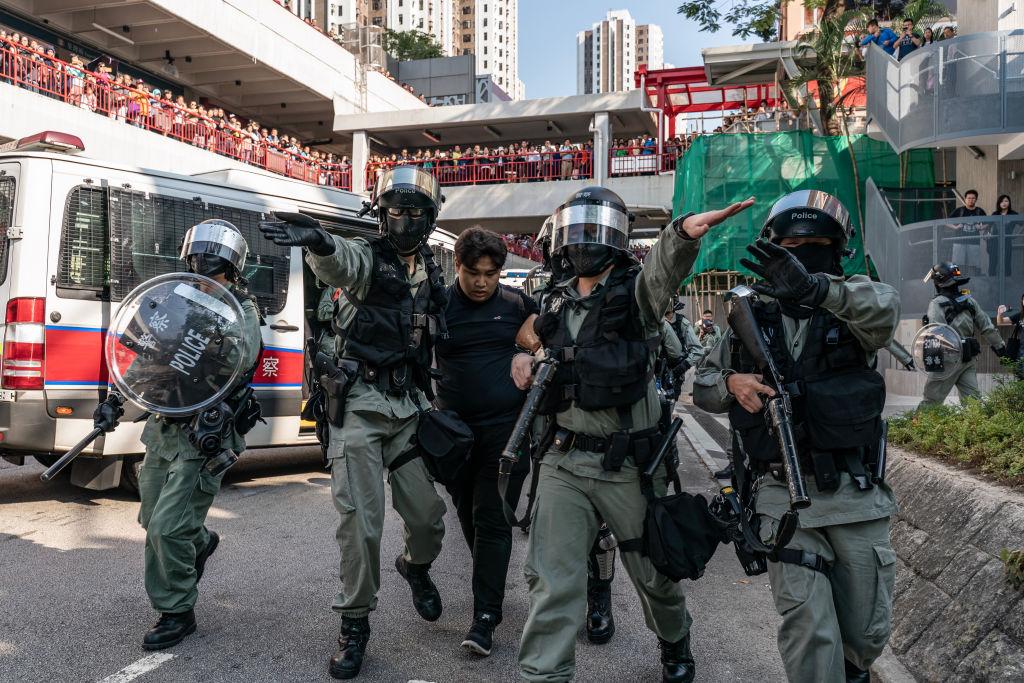Protesters in Hong Kong clashed again with police on Nov. 10, a day after about 100,000 people gathered for a candlelight vigil to commemorate the death of a college student that was related to police action.
Violence escalated on Nov. 11 morning, when police fired three live rounds at two protesters in the neighborhood of Sai Wan Ho, after a group of protesters tried to block roads as part of a citywide strike action. According to Hong Kong media, the two were taken away in an ambulance, one in critical condition.





